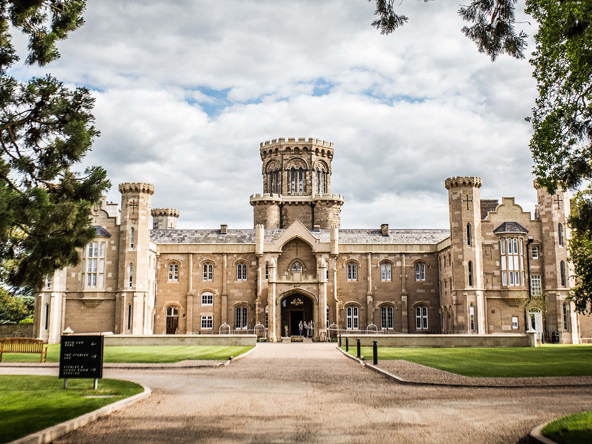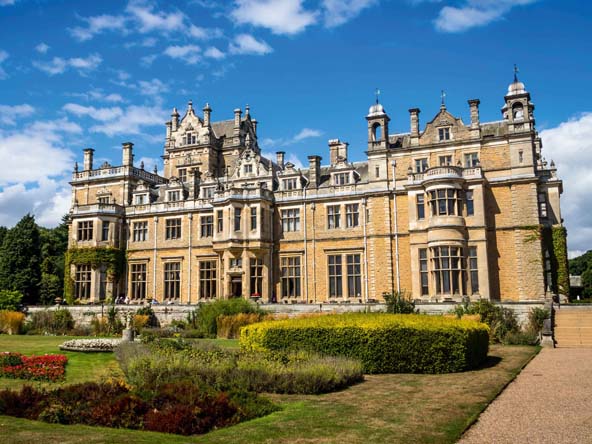FEATURE14 April 2022
A warm welcome: Insight and the hotel industry
x Sponsored content on Research Live and in Impact magazine is editorially independent.
Find out more about advertising and sponsorship.
FEATURE14 April 2022
x Sponsored content on Research Live and in Impact magazine is editorially independent.
Find out more about advertising and sponsorship.
With the global pandemic having wreaked havoc on the hospitality industry over the past two years, hotel operators need to understand what it is their guests want. Colette Doyle talks to Warner Leisure Hotels’ Jennifer McCormick to find out why its insight function is so vital to the company.

Short-break specialist Warner Leisure Hotels is part of the Bourne Leisure group, which also operates Haven Hotels and Butlin’s. The company currently has 14 hotels and coastal villas across the UK and is expected to open its 15th property, Heythrop Park in the Cotswolds, later this year. Situated on 440 acres of land next to Soho Farmhouse, the 300-room hotel will be Warner’s largest. This is bound to accentuate the importance of the insight team, given that the hotelier needs to ensure a steady flow of satisfied guests to keep occupancy rates high – and a large part of that will be down to tapping into how existing and potential customers think.
Jennifer McCormick is head of analytics and insight at Warner Leisure, and her background means she is well equipped to deal with the challenges of her current role. For seven years she worked at Whitbread, the owner of budget hotel chain Premier Inn, as well as restaurant brands such as Beefeater, Brewers Fayre and Bar + Block. She describes her time there as “a fantastic experience”.
When she joined the company, it had 500 hotels; when she left, there were more than 900, it had expanded into Germany, and had launched a new brand called Hub by Premier Inn. Prior to that, McCormick was at Tesco for a couple of years as Clubcard marketing manager, having started her career as customer insight manager at Haven Hotels – so she has, in effect, come full circle.
McCormick’s responsibilities sit within the company’s marketing function, but she says it’s important to flag up that it operates as a cross-functional team, providing analytics to a wide range of departments, including operations, proposition development, finance and sales. There are three individual strands to her role, she explains, the first of which is customer insight, where the team looks at market trends and competitor analysis. “As well as measuring the guest experience using feedback from the whole end-to-end journey, we help support projects with quantitative and qualitative research studies,” McCormick notes.
The second strand is customer analytics; this is where McCormick’s team will run data analysis, such as segmentations, to better understand the different kinds of guests who come to Warner. She elaborates: “We will endeavour to figure out their buying behaviour and the guest journey they’re going on, and how they are using our product. We will also try to predict and model behaviour. We will spend quite a lot of time typically looking at what our guests have done previously – their past behaviour – and we will then use that to predict their future behaviour; that’s always really interesting.”
McCormick’s team scrutinises, in some detail, the reasons that guests have for taking a short break or holiday. As an example, she alludes to how one guest might be feeling burnout at work: “In that case, they probably just want to go away for the weekend to relax and use the spa, and enjoy some quiet time. Whereas another type of guest might want to explore by visiting a different part of the country. What we do within our team is try to appreciate all the different reasons that a guest might have for staying with us, then that is used within our marketing strategy and planning to target them with personalised collateral specifically relevant to their needs.”
The third component is post-stay customer experience, focusing on any contact with, and feedback from, guests after they have left the hotel – in a nutshell, “complaints and compliments” as McCormick terms it. “We manage the guidelines and principles for dealing with problems, and our refunds and compensation processes. We also measure satisfaction – to what extent we adequately resolved the complaints from our customers and how happy they are with the outcome,” she notes. “We are continuously measuring that service delivery.”

More than 300 team members across the business have access to online dashboards, so they can look at the kind of feedback they have had from guests regarding their stay. Feedback can come in many forms, as McCormick explains: “It might be a case of a team member who a guest has acknowledged for providing exceptional service, or a complaint, as in some problem that a guest has encountered staying in a particular room”. The findings are used in a variety of ways, including in the development of Warner’s food and beverage proposition.
One thing McCormick is adamant about is creating actionable goals: “We don’t just communicate the insights; we are avid believers in recommending actions to go with them and working with our stakeholders on those actions that they are able to take as a result. We try to close the loop, meaning that we might deliver a debrief and catch-up with those people a few weeks later, to find out what they have managed to achieve thanks to the information we delivered.
“That could, in turn, lead to even more insights, because colleagues often say something like, ‘It’s really helped me, but I have some gaps when it comes to developing a strategy for such and such a part’.”
McCormick clearly relishes the opportunity to bring about positive commercial outcomes within the business: “I think that’s why I like working client-side so much, because it’s an ongoing process of communication – you get to see how the insight has spearheaded change and you get to work with the leaders who are implementing that change. I’m lucky that I work for a business that puts the customer at the heart of its decision-making.”
Almost all sectors of industry felt the impact of Covid-19, but hospitality bore the brunt of it, as McCormick acknowledges. “When the pandemic first started, all of our hotels obviously had to close down and we were in survival mode. But then, over time, as the country began to open up again, we have been focused on our recovery.”
She identifies two main priorities that the company is focusing on in the wake of the pandemic, the first of which revolves around a key point that will be only too familiar to many hospitality operators.
“We have had a lot of staff shortages because some members of the team returned to live abroad, or they moved to other sectors that didn’t have to shut down wholesale, the way hospitality did, such as retail,” explains McCormick. Another related issue involves supply chain problems, which is down to an unholy combination of Brexit and coronavirus. This has presented the group with a considerable challenge: “Namely, how do we still offer the Warner experience while ensuring that our guests stay safe and healthy?”
Even more important is re-evaluating the company’s customer segmentation and modelling. McCormick outlines the situation: “We built a lot of these prior to Covid-19 and, obviously, consumer behaviour has changed considerably in the meantime.
“We’ve actually managed to attract quite a lot of new customers, made up primarily of people who would normally have gone on holiday abroad, but who have not been able to because of the restrictions and so have opted to take a short break within the UK. That has meant we have had to rebuild our models and base these on the ‘new normal’, so to speak.
“From an analytics point of view, what we’re facing currently is that something will change, and then all of our insight and our understanding will suddenly be out of date. With the Omicron variant, for instance, that had its own impact, meaning we had to go back out there and start from scratch, asking people how they felt about choosing to stay overnight in a hotel to find out how it had changed their buying behaviour.”

McCormick has nothing but praise for the agencies that operate in the insight space: “The sheer amount of external research that has been made available from the likes of Walnut, Kantar and BVA BDRC – who have all compiled and published industry reports – has proved to be incredibly useful for us as part of the hospitality sector.” In particular, Warner recently partnered with Realise Unlimited, the data science and analytics arm of the Unlimited group, on a study called From concierge to CEO.
As McCormick notes: “This was a project that spanned a couple of years and it started off very much through a research lens. We have a target market of around 5.5 million people in the UK, who are aged 45-plus and like to go away on adult-only short breaks. Our aim was to really unpick that and find out exactly what it was they were looking for – for example, who they are travelling with, what kinds of activities they are taking part in, and so on. This was conducted via around 12 focus groups across the UK; we spent a lot of time addressing those key questions through qualitative research and ended up understanding a great deal more about our target market and current customers.”
The important thing to bear in mind, according to McCormick, is that this is a segmentation that will not only be used for marketing purposes .“This is a business tool that is embedded across all functions of the company. We can use the segmentation in various ways in the sense that, if you know why the guest has chosen to go on that particular holiday, you can better personalise their stay. That might be through providing them with extras, or upgrading their room because it’s a special occasion, or being more personal in the way that you greet them when they arrive at the property.”
Clearly, the collaboration with Realise was a successful one, as McCormick observes, referencing its holistic approach. “This is the first time I can say I’ve worked on a project that has truly blended research and analysis together,” she says. “I felt the work that Realise did to support me was unique; I would say they brought a fresh and straightforward way of thinking [to the process], which I liked.
“That was the key ethos for us: we needed to keep it simple because this is something that will be used across all of our teams, so if we make the modelling too complicated, they’re not going to buy into it.”
Looking ahead to the rest of 2022, McCormick singles out one task: testing. “We built prediction models with Realise, so I’m really keen to start testing them and finding out how well they perform. Then I will aim to evolve those models even further, to make them more accurate,” she remarks.
“Part of my plan for this year is to set up a cultural test-and-learn around the models, working with the marketing teams to understand how we can optimise them, thereby better personalising the experience for our guests.”
0 Comments